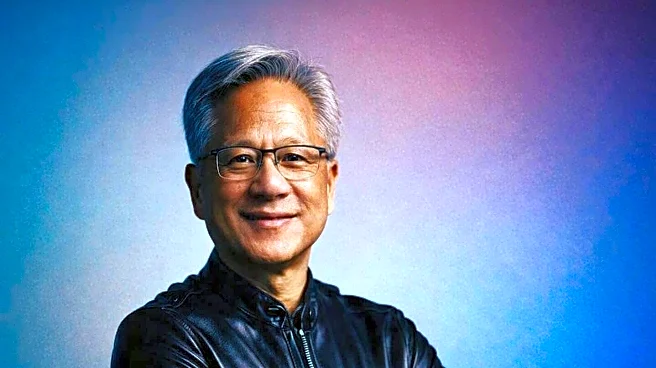‘Vande Mataram’, an eternally inspirational civilisational anthem of Bharat, written by sage and seer Bankim Chandra Chatterjee will be completing 150 years on 7 November this year. Though there have been multiple views about the date of its writing but now there is a broad agreement that it was written on 7 November 1875, much before it became part of his all-time great literary work, Anand Matha. Vande Mataram isn’t just a patriotic song; it had the unique ability to become the key catalyst for awakening of masses against British rule in India. It wasn’t just a war cry for a ‘land mass’ by subjects of a British colony, it was much more than that. Vande Mataram reflected the centuries-long yearning of an eternal civilisation to get unshackled
and realise her potential again.
Sri Aurobindo and the Spiritual Flame of Nationalism
Sri Aurobindo played a key role in establishing the spiritual significance of ‘Vande Mataram’ as he wrote (Sri Aurobindo and the New Thought in Indian Politics, p. xv.): “Though the song (Vande Mataram) was written as early as 1874 it truly sparked off a flame in the minds of the Indians in 1905 only. The revolutionary phosphorescence of the anti-partition movement (Bengal) inflamed the country in the form of the Swadeshi Movement of 1905. During this period ‘Vande Mataram’ proved to be the holy chant of Indian nationalism; It became the sacred hymn for the worship of the Motherland.”
Bankim-Aurobindo Relationship
Amrendra Laxaman Gadgil aptly explained the relationship between Vande Matram and Sri Aurobindo in his seminal work ‘Vande Mataram: The Song Perennial’ published on its centenary, “For Sri Ram, the hero of the great epic Ramayana a Valmiki, for Sri Krishna a Vyasa, for Ramakrishna Paramahamsa a Romain Roland, for Napoleon Bonaparte an Abbot, and for Johnson a Boswell were created. For Bankim Chandra, Aurobindo played brilliantly the same role in the first part of this century. Aurobindo has called Bankim a seer and a sage. The atomic force compressed in the song and what miracles it would work in future could only be visualised by Aurobindo with his mystic foresight and vision like the author of the great Bhagawadgita Sri Krishna. Bankim saw ‘Bharatamata’ in the form of Motherland (India) and Aurobindo saw Motherland as Kali (Durga) through the song Vande Mataram.”
From Song to Civilisational Symbol
The impact of Vande Mataram also got reflected in the form of several newspapers started under the name. According to Gadgil, the newspaper Bande Mataram of Bipin Chandra Pal had its origin in the idea of seeing one’s own country in the form of a Mother. The paper was named after this idea only. Further Sri Aurobindo shouldered the entire responsibility and justified its name. Sri Aurobindo has described Bankim Chandra as the most powerful apostle of Indian nationalism. The speciality was that he combined the worship of the all-powerful Goddess Durga with the orthodox Hinduism and the service to the manifest form of the Goddess with the idea of patriotism of the modern times.
Here is what Aurobindo has to say: “It linked up orthodox Hinduism with its worship of the cosmic goddess Durga and the modern cult of the worship of the country as a visible form of deity. The term Bande Mataram therefore, carried a message at once religious and political, traditional and modern.”
Spiritual Nationalism not Orthodoxy
Gadgil further says that some critics have only seen in this work the foul smell emanating from the Hindu idolatry idea and the reactionary sentimental people entangled in the waft; and web of orthodoxy.
Sri Aurobindo has called this a narrow and parochial vision, and has quoted from Krishna Charitra (1886) and Dharmatattva (1888) of Bankim Chandra to disprove these charges. On the contrary, Aurobindo has to prove from the strain of the writing that Bankim Chandra was not caught in the trail of Hindu orthodoxy nor has he ever assumed himself as a champion of traditional Hindu thought. Krishna of Bankim is not the Puranic deity of the Hindus, but he is the ideal and immortal Superman amongst men. This contains a force under its combined and organised influence that could integrate into one mould the people of different strata and diversified thinking.
“Bankim’s Krishna is nothing but a symbol of national unity. Bankim had digested the materialism, the patriotism and the humanism of the modern west during that era. Sri Aurobindo has further asserted that Vande Mataram was a song in verse form in which Bankim gave vent to his thought which was anti-traditional, quite rational and based on modern ideals. Really speaking, nationalism was revived and the country given a new lease of life.”
According to Gadgil, a new image about one’s own country was installed before the Indians through the song Vande Mataram by the fertile and imaginative brain of Bankim Chandra. People were diverted towards the worship of the Goddess representing patriotism in the form of the Motherland. Vande Mataram acquired during the Swadeshi Movement of 1905 the status of a national slogan and a war-cry for the patriots. This represented the resurrection of the country which had sunk to abysmal depths. The song got a revolutionary meaning and it was enthroned as the national anthem.
Thus, Aurobindo amplified this Vedic-like hymn Vande Mataram like the great Vyas who expounded the Vedas. Aurobindo did forecast the future for this brilliant, unassuming, unusual and gifted personality in 1894 itself. He said, “When the next generation stands up appropriately to honour those who created modern Bharat with garlands in their hands and praise on their lips, they will not at all garland those power-thirsty politicians, whose foreheads are perspiring, nor will they garland the so-called social reformers whose business has been only to lecture, but they shall place the garlands round the transparent neck of this benevolent Bengalee who toiled quite naturally and without any expectation of any reward but duty bound, and gave to us whatever was best in him.”
The writer is an author and columnist. His X handle is @ArunAnandLive. Views expressed in the above piece are personal and solely those of the author. They do not necessarily reflect News18’s views.


/images/ppid_59c68470-image-177071008324940804.webp)
/images/ppid_59c68470-image-177071007375437723.webp)
/images/ppid_59c68470-image-177071003213418150.webp)
/images/ppid_a911dc6a-image-177071187085537069.webp)



/images/ppid_a911dc6a-image-177071163812861919.webp)






/images/ppid_a911dc6a-image-177071104548613514.webp)


